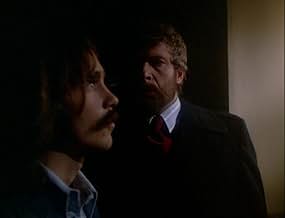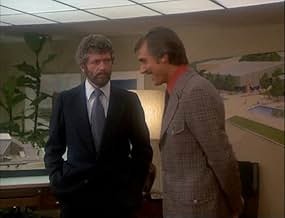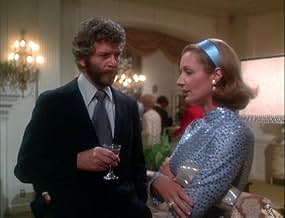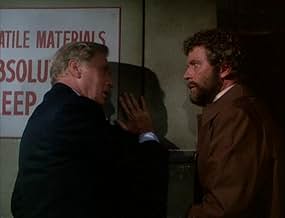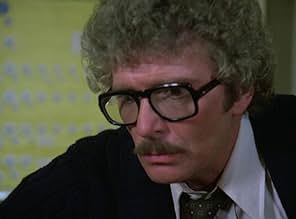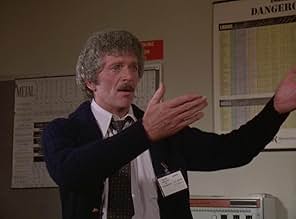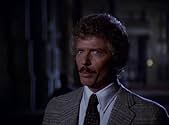Robert Reed(1932-1992)
- Actor
- Director
- Soundtrack
Robert Reed was an American actor, mostly known for television roles. His most famous role was that of pater familias Michael Paul "Mike" Brady in the popular sitcom "The Brady Bunch" (1969-1979). He returned to this role in several of the sitcom's sequels and spin-offs.
Reed was born under the name "John Robert Rietz Jr. " in 1932. His birthplace was Highland Park, Illinois, a suburb of Chicago. His parents were government worker John Robert Rietz Sr. and homemaker Helen Teaverbaugh. The couple were childhood sweethearts and married each other at age 18. Reed was their only child.
Due to his father's career transfers, Reed moved often as a child. He spend part of his childhood in Navasota, Texas and Shawnee, Oklahoma. The senior Reitz eventually retired from his government positions, and started a new life as a cattle farmer in Muskogee, Oklahoma. The Reitz family moved to a farm there.
As a youth, Reed joined the 4-H agricultural club, and demonstrated calves in agricultural shows. He was already fascinated with acting and music, and started performing as a theatrical and singer before he graduated high school. He had a side career as a radio announcer for local radio stations, and also helped produce radio dramas.
Reed graduated from Muskogeee's Central High School in 1950. He soon enrolled at Northwestern University in Evanston, Illinois, where he studied drama. His mentor was acting coach Alvina Krause (1893-1981). During his university years, Reed played the leading role in 8 different plays. Following his graduation, Reed studied abroad at Royal Academy of Dramatic Art in London.
With the completion of his studies, Reed started a career as a theatrical actor. He appeared in summer stock productions in Pennsylvania, and joined the off-Broadway theatre group "The Shakespearewrights" which (as their name suggested) specialized in Shakespearean plays. Reed had leading roles in the group's productions of "Romeo and Juliet" and "A Midsummer Night's Dream". He left the group to join the Chicago-based Studebaker Theatre company.
By the late 1950s, Reed remained a relatively obscure theatrical actor. He moved to Los Angeles in hope of finding higher-profile roles in film or television. In 1959, Reed made his television debut in a guest star role in the sitcom "Father Knows Best". He next had guest star roles in the science fiction series "Men into Space" (1959-1960), and the Western series "Lawman" (1958-1962). His film debut was the horror film "Bloodlust!" (1961), playing the human prey of a sadistic hunter. The film was a loose adaptation of the short story "The Most Dangerous Game" (1924) by Richard Connell (1893-1949).
Reed had his first major role in television as lawyer Kenneth Preston in the courtroom drama series "The Defenders" (1961-1965). Reed played the son and junior partner of lawyer Lawrence Preston (played by E. G. Marshall), in a series featuring a father-son legal team. The series lasted for 132 episodes, and was a ratings hit. The series earned a total of 22 Primetime Emmy Award nominations during its run.
Following the cancellation of "The Defenders", Reed was mostly reduced to supporting roles in television. He appeared in (among others) "Family Affair"," Ironside", "The Mod Squad", and "Bob Hope Presents The Chrysler Theatre". In 1968, Reed signed a contract to play a lead role in the television adaptation of the play "Barefoot in the Park" (1963) by Neil Simon. When it was decided that the television adaptation would feature a mostly African-American cast, Reed was offered a leading role in "The Brady Bunch" as a consolation prize.
"The Brady Bunch" lasted for 117 episodes, though it never was among the highest-rated shows on television. It found a larger audience in syndication after its cancellation, and has remained a cult favorite. Reed was not happy with the often silly scripts of the sitcom, and had regular arguments about suggested re-writes with the show's producer Sherwood Schwartz (1916-2011). On the other hand, Reed formed long-lasting friendships with most members of the series' main cast.
Reed refused to appear in the fifth season finale of "The Brady Bunch", because he felt its script was unacceptable. He was fired from the series, and the production team considered replacing him with a new actor for the series' sixth season. However, the fifth season turned out to be the final one, with network ABC deciding to cancel the series.
While "The Brady Bunch" was still ongoing, Reed had the recurring role of Lt. Adam Tobias in the detective series "Mannix". He played the role for 22 episodes, running from 1968 to 1975. With the series' cancellation in 1975, Reed was left with no regular roles for the first time since the late 1960s.
Reed's next notable role was that of transgender Dr. Pat Caddison in the two-part episode "The Fourth Sex" (1975) of the medical drama Medical Center". The role was critically well-received, and Reed was nominated for a Primetime Emmy Award, the "Primetime Emmy Award for Outstanding Guest Actor in a Drama Series". The award was instead won by rival actor Ed Asner (1929-).
Reed had a regular role as Teddy Boylan in the dramatic miniseries "Rich Man, Poor Man" (1976), and a prominent guest appearance as Dr. William Reynolds in the miniseries "Roots" (1977). For the first role, Reed was nominated for the Primetime Emmy Award for Outstanding Supporting Actor in a Drama Series. The Award was instead won by rival actor Anthony Zerbe (1936-). For the second role, Reed was nominated again for the Primetime Emmy Award for Outstanding Guest Actor in a Drama Series. The award was instead again won by rival actor Ed Asner.
Reed reunited with his friends from the Brady Bunch in the sequel series "The Brady Bunch Hour" (1976-1977), which only lasted for 9 episodes. He next played Mike Brady in the television film "The Brady Girls Get Married" (1981), the television film "A Very Brady Christmas" (1988), and the short-lived sequel series "The Bradys" (1990). The attempts to turn the popular sitcom into a dramatic series were not met with success.
Reed had another lead role in television as Dr. Adam Rose on the medical drama "Nurse" (1981-1982). The series only lasted for 25 episodes. Otherwise, Reed was reduced to mostly playing guest star roles again. His last guest star role appeared in 1992 episode of the crime drama "Jake and the Fatman".
In November 1991, Reed was diagnosed with colon cancer. As his health deteriorated, Reed increasingly isolated himself. He only allowed visits from his daughter Karen Rietz and close friend Anne Haney (1934-2001). In May 1992, he died at Huntington Memorial Hospital in Pasadena, California. He was 59-years-old. He was buried at Memorial Park Cemetery in Skokie, Illinois.
Following his death, his death certificate revealed that Reed was HIV positive. While he was not suffering from AIDS, doctors were unable to determine whether HIV contributed to the deterioration of his health and his eventual death. How and when Reed contracted HIV remains unknown. Reed had managed to avoid having information about his personal life leaking to the press during his career, and also avoided sharing details about it even with his friends.
Reed is still fondly remembered for his television work, while his theatrical career has largely faded from memory.
Reed was born under the name "John Robert Rietz Jr. " in 1932. His birthplace was Highland Park, Illinois, a suburb of Chicago. His parents were government worker John Robert Rietz Sr. and homemaker Helen Teaverbaugh. The couple were childhood sweethearts and married each other at age 18. Reed was their only child.
Due to his father's career transfers, Reed moved often as a child. He spend part of his childhood in Navasota, Texas and Shawnee, Oklahoma. The senior Reitz eventually retired from his government positions, and started a new life as a cattle farmer in Muskogee, Oklahoma. The Reitz family moved to a farm there.
As a youth, Reed joined the 4-H agricultural club, and demonstrated calves in agricultural shows. He was already fascinated with acting and music, and started performing as a theatrical and singer before he graduated high school. He had a side career as a radio announcer for local radio stations, and also helped produce radio dramas.
Reed graduated from Muskogeee's Central High School in 1950. He soon enrolled at Northwestern University in Evanston, Illinois, where he studied drama. His mentor was acting coach Alvina Krause (1893-1981). During his university years, Reed played the leading role in 8 different plays. Following his graduation, Reed studied abroad at Royal Academy of Dramatic Art in London.
With the completion of his studies, Reed started a career as a theatrical actor. He appeared in summer stock productions in Pennsylvania, and joined the off-Broadway theatre group "The Shakespearewrights" which (as their name suggested) specialized in Shakespearean plays. Reed had leading roles in the group's productions of "Romeo and Juliet" and "A Midsummer Night's Dream". He left the group to join the Chicago-based Studebaker Theatre company.
By the late 1950s, Reed remained a relatively obscure theatrical actor. He moved to Los Angeles in hope of finding higher-profile roles in film or television. In 1959, Reed made his television debut in a guest star role in the sitcom "Father Knows Best". He next had guest star roles in the science fiction series "Men into Space" (1959-1960), and the Western series "Lawman" (1958-1962). His film debut was the horror film "Bloodlust!" (1961), playing the human prey of a sadistic hunter. The film was a loose adaptation of the short story "The Most Dangerous Game" (1924) by Richard Connell (1893-1949).
Reed had his first major role in television as lawyer Kenneth Preston in the courtroom drama series "The Defenders" (1961-1965). Reed played the son and junior partner of lawyer Lawrence Preston (played by E. G. Marshall), in a series featuring a father-son legal team. The series lasted for 132 episodes, and was a ratings hit. The series earned a total of 22 Primetime Emmy Award nominations during its run.
Following the cancellation of "The Defenders", Reed was mostly reduced to supporting roles in television. He appeared in (among others) "Family Affair"," Ironside", "The Mod Squad", and "Bob Hope Presents The Chrysler Theatre". In 1968, Reed signed a contract to play a lead role in the television adaptation of the play "Barefoot in the Park" (1963) by Neil Simon. When it was decided that the television adaptation would feature a mostly African-American cast, Reed was offered a leading role in "The Brady Bunch" as a consolation prize.
"The Brady Bunch" lasted for 117 episodes, though it never was among the highest-rated shows on television. It found a larger audience in syndication after its cancellation, and has remained a cult favorite. Reed was not happy with the often silly scripts of the sitcom, and had regular arguments about suggested re-writes with the show's producer Sherwood Schwartz (1916-2011). On the other hand, Reed formed long-lasting friendships with most members of the series' main cast.
Reed refused to appear in the fifth season finale of "The Brady Bunch", because he felt its script was unacceptable. He was fired from the series, and the production team considered replacing him with a new actor for the series' sixth season. However, the fifth season turned out to be the final one, with network ABC deciding to cancel the series.
While "The Brady Bunch" was still ongoing, Reed had the recurring role of Lt. Adam Tobias in the detective series "Mannix". He played the role for 22 episodes, running from 1968 to 1975. With the series' cancellation in 1975, Reed was left with no regular roles for the first time since the late 1960s.
Reed's next notable role was that of transgender Dr. Pat Caddison in the two-part episode "The Fourth Sex" (1975) of the medical drama Medical Center". The role was critically well-received, and Reed was nominated for a Primetime Emmy Award, the "Primetime Emmy Award for Outstanding Guest Actor in a Drama Series". The award was instead won by rival actor Ed Asner (1929-).
Reed had a regular role as Teddy Boylan in the dramatic miniseries "Rich Man, Poor Man" (1976), and a prominent guest appearance as Dr. William Reynolds in the miniseries "Roots" (1977). For the first role, Reed was nominated for the Primetime Emmy Award for Outstanding Supporting Actor in a Drama Series. The Award was instead won by rival actor Anthony Zerbe (1936-). For the second role, Reed was nominated again for the Primetime Emmy Award for Outstanding Guest Actor in a Drama Series. The award was instead again won by rival actor Ed Asner.
Reed reunited with his friends from the Brady Bunch in the sequel series "The Brady Bunch Hour" (1976-1977), which only lasted for 9 episodes. He next played Mike Brady in the television film "The Brady Girls Get Married" (1981), the television film "A Very Brady Christmas" (1988), and the short-lived sequel series "The Bradys" (1990). The attempts to turn the popular sitcom into a dramatic series were not met with success.
Reed had another lead role in television as Dr. Adam Rose on the medical drama "Nurse" (1981-1982). The series only lasted for 25 episodes. Otherwise, Reed was reduced to mostly playing guest star roles again. His last guest star role appeared in 1992 episode of the crime drama "Jake and the Fatman".
In November 1991, Reed was diagnosed with colon cancer. As his health deteriorated, Reed increasingly isolated himself. He only allowed visits from his daughter Karen Rietz and close friend Anne Haney (1934-2001). In May 1992, he died at Huntington Memorial Hospital in Pasadena, California. He was 59-years-old. He was buried at Memorial Park Cemetery in Skokie, Illinois.
Following his death, his death certificate revealed that Reed was HIV positive. While he was not suffering from AIDS, doctors were unable to determine whether HIV contributed to the deterioration of his health and his eventual death. How and when Reed contracted HIV remains unknown. Reed had managed to avoid having information about his personal life leaking to the press during his career, and also avoided sharing details about it even with his friends.
Reed is still fondly remembered for his television work, while his theatrical career has largely faded from memory.


